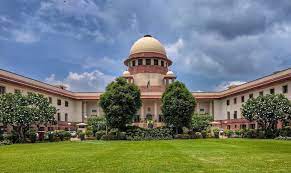The claim of the plaintiff was that Choyichi (who died in the year 1962) had a right, though a limited right under the Hindu Mitakshara law as well as by virtue of Hindu Women’s Right to Property Act, 1937 which blossomed into fullfledged right under Section 14 subsection (1) of Hindu Succession Act, 1956 which is reproduced below (Para 3)
Thereafter, Sukumaran and later the children succeeding Sukumaran had the right over the property which undisputedly remained in their possession. Section 14 subSection (1) had no application in this case. The essential ingredient of Section 14 subSection (1) is possession over the property. Admittedly the plaintiff was never in possession of the property. The possession was always that of the defendant and therefore Section 14 subSection (1) would not be applicable. (Para 4)
The findings of all the courts below were that Choyichi was never in possession of the property and therefore she would not get the right, as claimed by her under Section 14(1) of the Hindu Succession Act, 1956. (Para 5)
The argument which has been put forward by the learned senior counsel before us is on the reasoning that merely because the land has a few coconut trees, that will not make it an agricultural land, as in Kerela, coconut trees are found everywhere even in the urban residential properties and their presence itself will not make the land an agricultural land. (Para 6)
The land in question undoubtedly has coconut trees on it, most of them are very old but fruit bearing, and moreover in revenue records, the land is described as “theaattam” i.e., “garden”. This would mean that the land in question may be put for agricultural use. Theoretically, it is possible that a land which is recorded as “theaattam” may not be actually put for agricultural use. All the same, in the present case, the overwhelming evidence which has been duly appreciated by the three Courts below clearly prove that the land was indeed an agricultural land. We therefore find no reason to take a different view at this stage. (Para 7)
There is another aspect of the matter. Admittedly the defendants have all along been in possession of the property. The finding of adverse possession in favour of the defendants by the Trial Court, was never challenged by the plaintiffs/appellants before the First Appellate Court. (Para 9)
SUPREME COURT OF INDIA
2023 STPL(Web) 215 SC
[2023 INSC 774]
Sivadasan (Dead) Through Lrs. & Ors. Vs. A. Soudamini (Dead) Through Lrs. & Ors.
Civil Appeal No. 254 of 2010-Decided on 28-8-2023
https://stpllaw.in/wp-content/uploads/2023/08/2023-STPLWeb-215-SC-1.pdf







